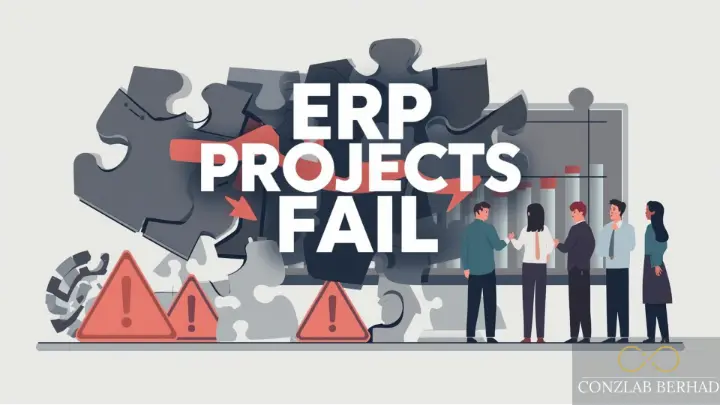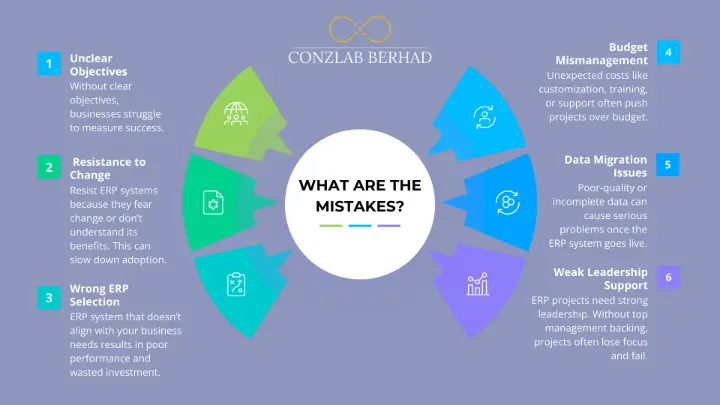Understand ERP Project Failures

ERP (Enterprise Resource Planning) systems are designed to streamline operations, improve efficiency, and provide better control over business processes. Yet, many ERP projects end in failure, causing wasted time, money, and resources. Understanding why these failures happen is the first step to ensuring a successful ERP journey.
Why Do ERP Projects Fail?

ERP systems are powerful tools, but success depends on how they are planned, implemented, and managed. When businesses rush into ERP without preparation, they face setbacks like budget overruns, low user adoption, and operational disruptions.
Solutions to Solve The Problem
Unclear Objectives
Set realistic goals like reducing manual processes, improving reporting, or enhancing customer service.
Resistance to Change
Involve employees early, explain benefits, and provide proper training.
Wrong ERP Selection
Carefully evaluate ERP options and choose one tailored to your industry and scale.
Budget Mismanagement
Prepare a detailed budget that includes all hidden costs, not just the software.
Data Migration Issues
Clean and validate all data before migration to ensure smooth operations.
Weak Leadership Support
Ensure management is actively involved and supports the team throughout the process.
Conclusion

Most ERP failures don’t happen because the system is bad. They usually come from poor planning, lack of training, or weak execution. The encouraging part is that these challenges can be avoided. With clear goals, engaged employees, accurate data, well-managed budgets, and strong leadership support, businesses can steer clear of costly mistakes and build a foundation for long-term ERP success.
ERP success is less about technology and more about people, planning, and process
Very important. A lack of timely vendor guidance can leave businesses struggling with system errors, integration issues, and delayed training for employees.
Skipping phased rollouts increases risks, as problems are harder to detect early. A gradual approach allows businesses to fix issues before scaling across the organization.
Rushed deadlines lead to poor planning, skipped testing, and employee stress — all of which increase the chances of ERP failure.
Why do ERP Projects Fail: Common Mistakes to Avoid